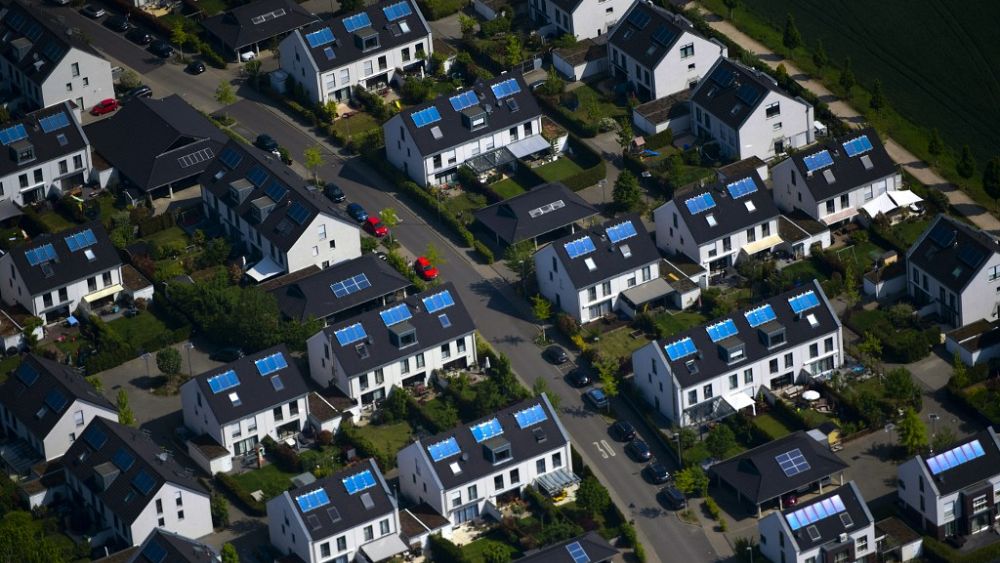
Consumers and poorer households must not bear the brunt of the drive to make buildings more energy-efficient, a member of the European Parliament has told Euronews.
Making buildings greener, so that they use less energy, is a crucial element of the EU’s strategy towards climate neutrality.
But socialist MEP Javi López says that the cost to do so must be shared out evenly across society.
“People could assume the costs of changes if they knew that these costs will be distributed fairly, and for this, public administration has a key role to play,” the Spanish parliamentarian explained. “We have to improve energy efficiency in our houses, but the costs for this transition have to be distributed fairly and that is how I think the population will be capable of assuming costs. If not, it is possible that there is gonna be an eco-reaction.”
There is a risk that citizens will have to assume some of the rises in energy costs, as fossil fuels become more and more expensive. For low-income households, this could be too much, given that nearly 7% of Europeans live in energy poverty, according to the European Commission.
One of the main ways to reduce energy bills is to insulate homes, making them more energy-efficient.
But it is often difficult to know where to start.
Homegrade is a help centre funded by the Brussels region in Belgium, which advises citizens who are willing to renovate their houses. Their experts give guidance on choosing materials or a new heating system.
And according to Didier Van Severen, general manager at Homegrade, one of the questions they always get from people is about the cost of getting work done.
“Obviously the financial question is the key trigger. And most often the people are not aware that they can get good grants if they do renovate,” Van Severen told Euronews. “However, another big barrier is also the administrative barrier, because it is quite complex whenever you want to get these grants, whenever you want to get a permit to start a renovation, people are sometimes lost.”
According to the European Commission, buildings account for 40% of the energy that is consumed in the EU and 36% of its greenhouse gas emissions.

